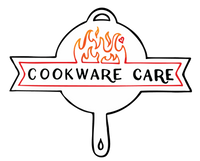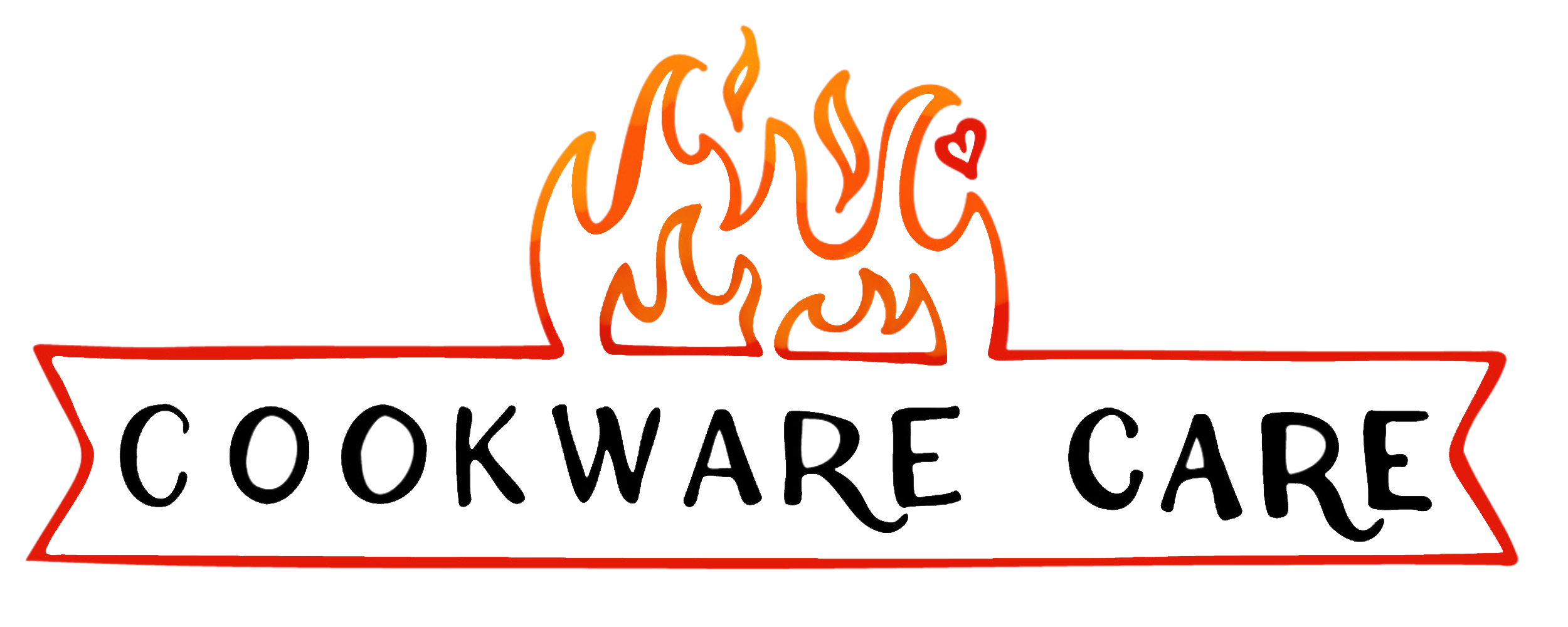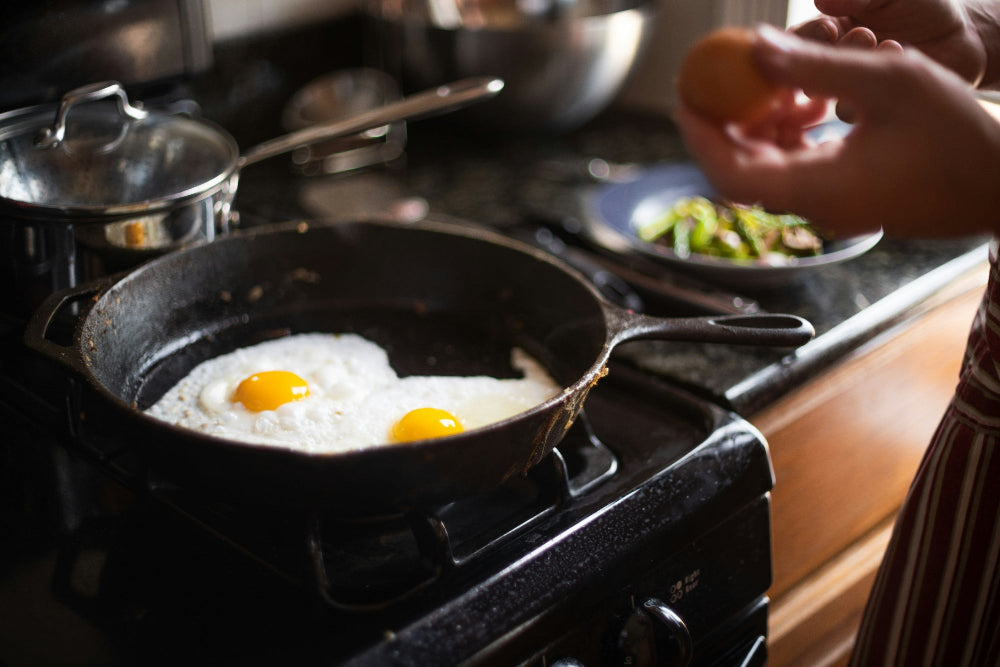Cast iron skillets have been a kitchen staple for centuries, prized for their durability and ability to distribute heat evenly. However, recent concerns have arisen about their potential health risks, particularly the fear that they might contribute to cancer. Let’s delve into the facts and dispel these myths.
The short answer is no, there's no conclusive evidence to suggest that cooking with cast iron skillets increases the risk of cancer.
The Iron Truth: Understanding the Facts

One of the primary concerns about cast iron cookware is its potential to leach iron into food. While this is true, it's important to understand that iron is an essential mineral for our bodies. In fact, many people, especially women, are iron-deficient. A moderate amount of iron from cast iron cookware can be beneficial, especially when cooking acidic foods like tomato sauce or citrus juices.
When acidic foods come into contact with the iron-rich surface, a chemical reaction known as oxidation occurs, releasing iron ions into the food. This process is influenced by factors like acidity, cooking time, and the type of iron in the cookware. As noted by Examine.com, the rate of iron leaching can vary depending on these factors.
However, excessive iron intake can lead to iron overload, a condition that can damage organs. Individuals with hemochromatosis, a genetic disorder that causes the body to absorb too much iron, should exercise caution when using cast iron cookware.
To minimize the risk of iron overload:
- Monitor Iron Intake: Consult with a healthcare professional to assess your iron levels.
- Cook with Moderation: Use cast iron cookware occasionally, rather than daily.
- Choose Non-Acidic Foods: Cook less acidic foods like vegetables or grains in cast iron.
- Season Properly: A well-seasoned cast iron skillet can reduce iron leaching. To achieve optimal seasoning, consider using our Cast Iron Seasoning Oil Blend. This high-quality blend is specifically formulated to create a non-stick surface and protect your cookware.
By following these guidelines and using our premium seasoning oil, you can enjoy the benefits of cast iron cookware while minimizing potential risks.
Debunking the Myths: Cast Iron and Cancer

One of the most persistent myths surrounding cast iron cookware is that it can cause cancer. This misconception likely stems from concerns about potential chemical leaching or the formation of harmful compounds during cooking. However, there is no credible scientific evidence to support this claim.
Cast iron cookware does not cause cancer. In fact, many health experts consider cast iron to be a safe and healthy cooking option. The iron leached from cast iron can even provide nutritional benefits, especially for those with iron deficiency.
One of the significant advantages of cast iron cookware is its ability to distribute heat evenly. This can lead to more efficient cooking, reducing the need for high heat and excessive oil. By using less oil, you can reduce your intake of unhealthy fats and calories.
While cast iron cookware offers numerous benefits, it's essential to use it properly. Proper seasoning and cleaning can help maintain its non-stick properties and prevent rust.
Safety Tips for Healthy Cooking with Cast Iron
To ensure the longevity and safety of your cast iron cookware, follow these essential tips:
- Proper Seasoning: Seasoning your cast iron skillet creates a non-stick surface that prevents rust and reduces the risk of excessive iron leaching. Use our Cast Iron Seasoning Oil Blend for a quick and easy way to achieve a perfect seasoning.
- Avoid Harsh Detergents: Harsh detergents can strip away the seasoning on your cast iron skillet. Instead, clean it with hot water, a soft brush, and a little mild soap.
- Use Gentle Utensils: Avoid using metal utensils on your cast iron skillet, as they can scratch the surface and damage the seasoning. Opt for wooden or silicone utensils to protect your cookware.
- Hand-Wash Only: While it may be tempting to use the dishwasher, it's best to hand-wash your cast iron skillet. The high heat and harsh detergents in dishwashers can damage the seasoning and lead to rust.
- Dry Thoroughly: After cleaning, dry your cast iron skillet completely with a clean towel to prevent rust.
- Store Properly: Store your cast iron skillet in a dry place, such as an oven, to maintain its seasoning.
Cast iron cookware are a safe and versatile cooking tool when used correctly. While it's true that cast iron can leach iron into food, this is generally considered a benefit, especially for those with iron deficiency. However, it's important to use cast iron cookware in moderation and consult with a healthcare professional if you have concerns about your iron intake.
Contrary to popular belief, cast iron skillets do not cause cancer. The potential health risks associated with cooking, such as the formation of harmful compounds, are primarily linked to high-temperature cooking methods and excessive oil use. By using cast iron cookware properly, you can reduce your reliance on unhealthy oils and promote healthier cooking habits.
So, don't be afraid to embrace the benefits of cast iron cooking! With proper care and maintenance, and the use of our Cast Iron Seasoning Oil Blend, your cast iron skillet can last for generations.
Want to learn more about healthy cooking tips and tricks? Sign up for our email list to receive exclusive savings, recipes, cooking advice, and product recommendations. And don't forget to check out our Cast Iron Seasoning Oil Blend for a hassle-free way to maintain your cast iron cookware.








